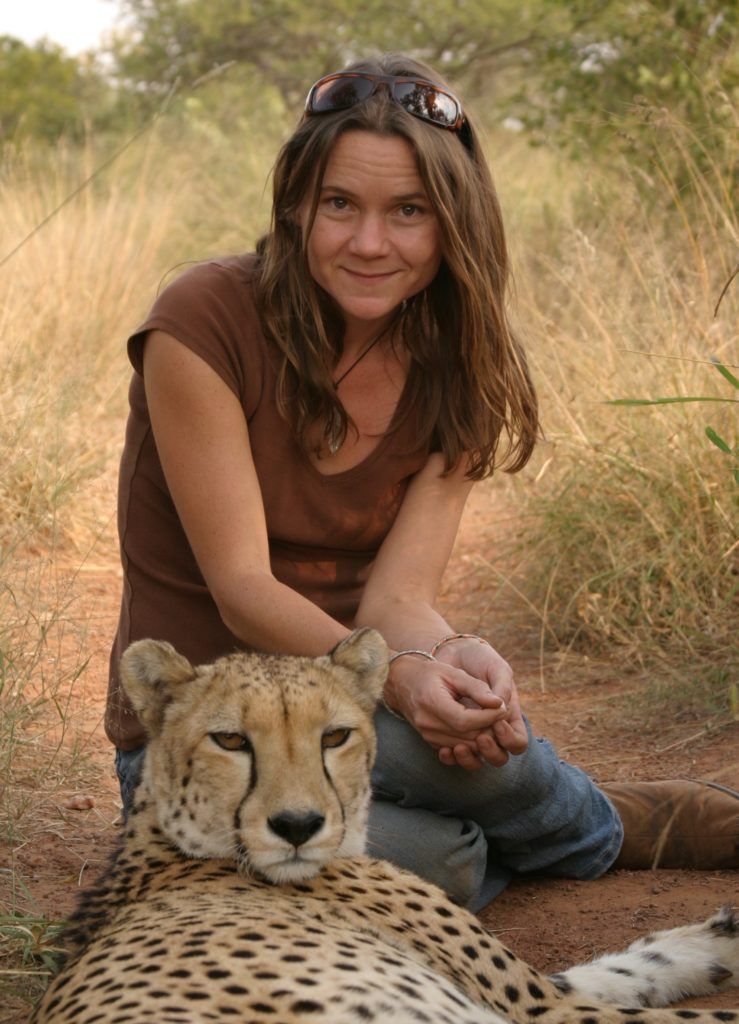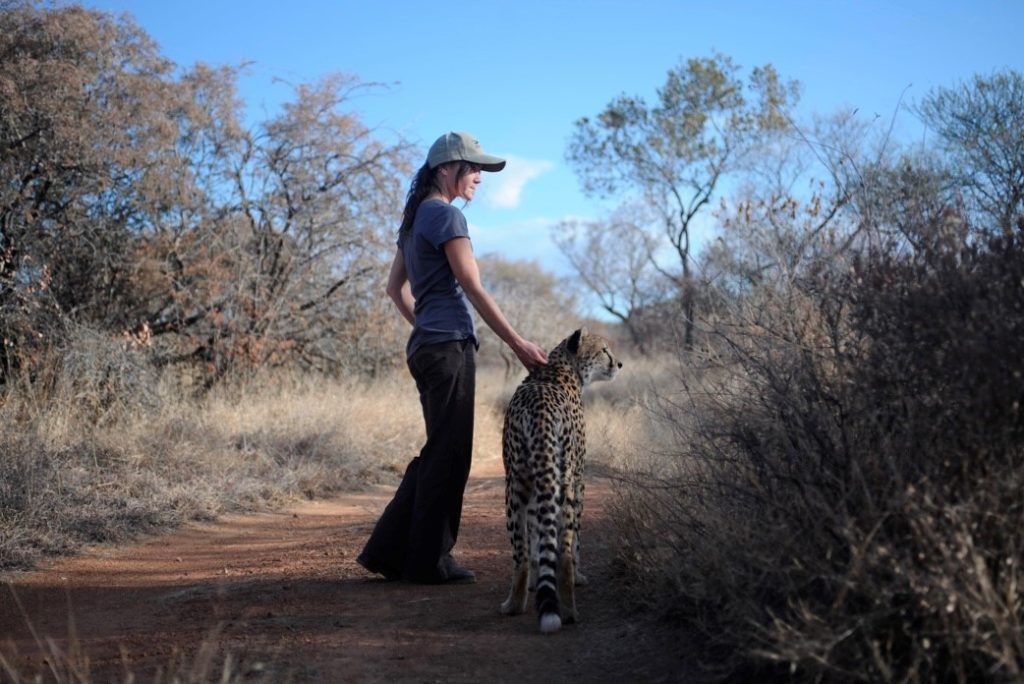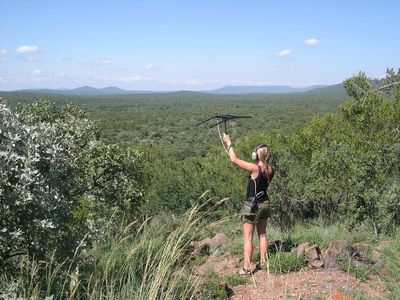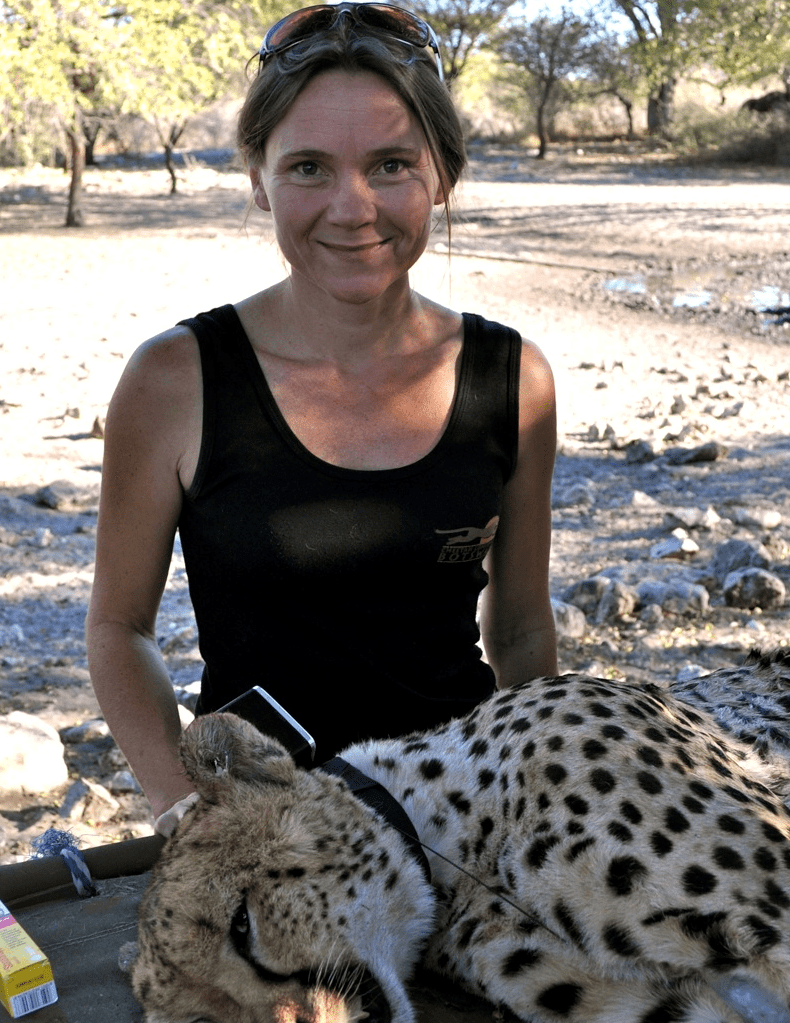Meet Rebecca Klein: PTES project leader
In this series, we chat to the dedicated staff members, conservation partners and volunteers at PTES. We find out why each of them chose a career in wildlife conservation, what they find rewarding about their work and what they love most about what they do.
Rebecca Klein
Founder of Cheetah Conservation Botswana
Why did you decide to go into wildlife conservation?
For as long as I can remember I’ve been inspired by nature. My fascination began in childhood. As I grew up, I became increasingly concerned about global environmental issues, particularly the loss of biodiversity. As a young teenager I decided to commit my life to conserving endangered species. It was my calling I suppose! I also had adventurous parents that cared about environmental and social issues and exposed me to different landscapes and cultures.
Has your conservation work been rewarding and if so, in what way?
It’s been incredibly rewarding. The feeling from releasing a cheetah into the wild when it nearly lost its life on farmlands is phenomenal. Or when a farmer who was previously intolerant to large carnivores starts considering different approaches. Or a student becomes inspired by Botswana’s biodiversity through our programmes. All these are so rewarding. However, it’s tempered with frustration through the need to do more and of course the urgency.
What are the main reasons for some of your greatest successes?
Having a supportive family has provided me with a strong foundation to continue my work: my parents gave me a childhood full of incredible wilderness experiences in the remote countries where they worked. Botswana still has many important populations of so many threatened species; the government has been constantly supportive of our work and sees us as critical partners in reducing human-wildlife conflict outside Protected Areas. We work closely with them which has enabled us to have a greater reach. The Botswana farmers have welcomed us onto their farms and cattleposts throughout the years. They’ve shared their experiences and wisdom with us and been open to trying new ways of coexisting with carnivores. Finally, our wonderful team of 18 primarily local staff, work so hard, often in extreme conditions to promote the coexistence of people and wildlife through our range of approaches. Our success is built on their hard work and commitment to our collective mission.
Reflecting on your past, what has been one of your most memorable experiences so far?
I founded Cheetah Conservation Botswana (CCB) in 2003 after coming to the country to work at Mokolodi Nature Reserve. One of my roles was caring for two cheetah brothers whose mother had been killed by a livestock farmer. I was inspired by these beautiful animals who I cared for daily. I will always remember the way they would purr when we were together and I like to think we ‘loved’ each other! I then discovered there was no concerted conservation effort to protect cheetahs, despite the widespread persecution. Botswana’s cheetah population is 2,500, making the country a cheetah strongholds. However, populations within protected areas are outcompeted by stronger carnivores, while outside these areas they come into conflict with rural farming communities. Their survival is now dependent on conservation management of these areas and the attitudes of these communities. I saw my opportunity to make a difference and established CCB.
What difficulties or challenges do you face in your work and how to think you’ll overcome them?
The big challenge now is Covid19 and being able to continue our work with communities. The ongoing restrictions have made group work and gatherings challenging and a lot has been postponed over the last 18 months. However, we have adapted by holding smaller, more frequent sessions, on site at farms, cattleposts, settlements and ensuring all safety protocols are managed. Now we are used to this new ‘normal’ and can continue our work fairly consistently these days.
One of the biggest challenges in the past has been overcoming preconceived perceptions that cheetahs are pests and a threat to livelihoods. In the early days, few farmers wanted to welcome a carnivore conservation organisation into their midst, but over time we became part of the community, made friends, provided a range of support and slowly became a part of the landscape. Now we’re welcomed to events, called up for advice and regularly engaged by the farming community for support with coexistence.
In addition, our newest programme Communities for Conservation, is partnering with people to develop conservation compatible livelihoods such as cultural and eco-tourism, medicinal plant products, craft development and investigating the opportunities for ‘wildlife friendly’ beef.
How can we best inspire the younger generation?
We can inspire the younger generation by helping them to be aware of the value of wildlife and wilderness, highlighting the unique beauty, diversity and delicate balance of it all. I think we need to empower young people to appreciate that they can be conservationists in whatever they do, at school, at home, in their careers. The future of our world requires that everyone starts thinking with conservation principles not only about wildlife and natural ecosystems, but also how we carry out agriculture, farming, building, mining, development, and waste management. I believe whatever career path you choose, you can be a conservationist. Conservation principles need to be incorporated into all elements of our lives and indeed that is what the future needs.
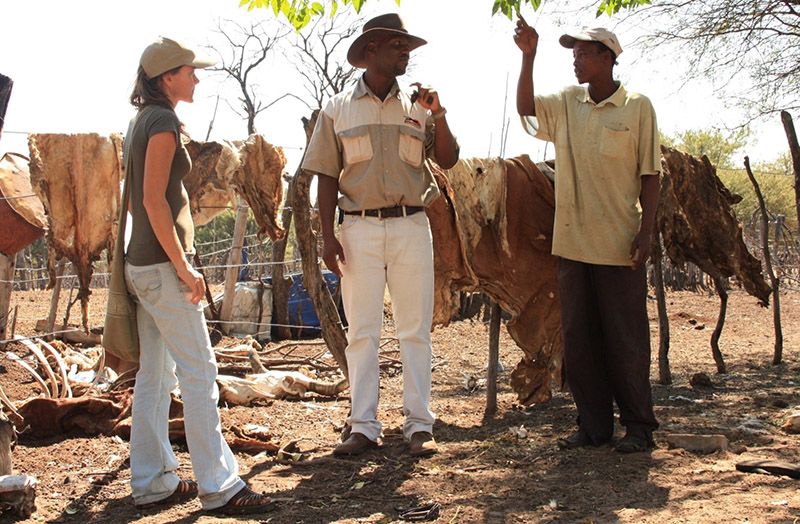
Find out more about Rebecca’s work to protect cheetahs in Botswana here:

